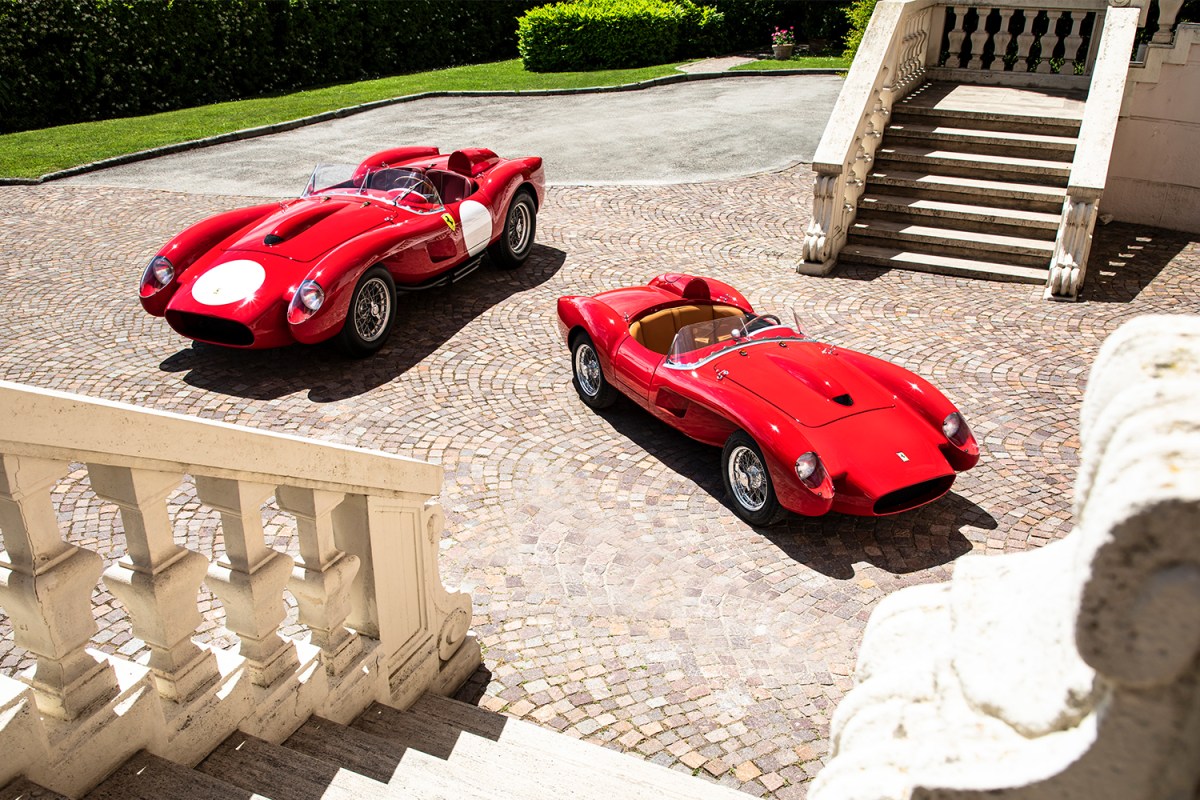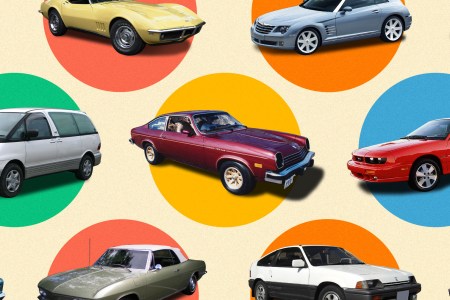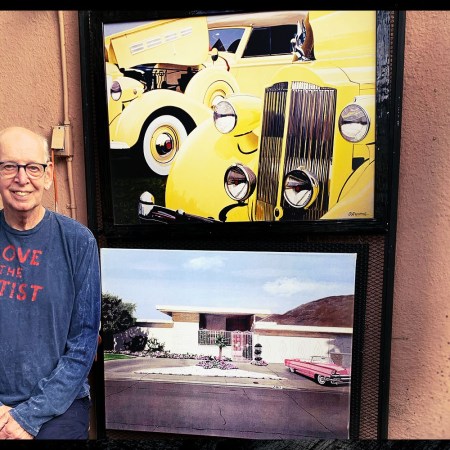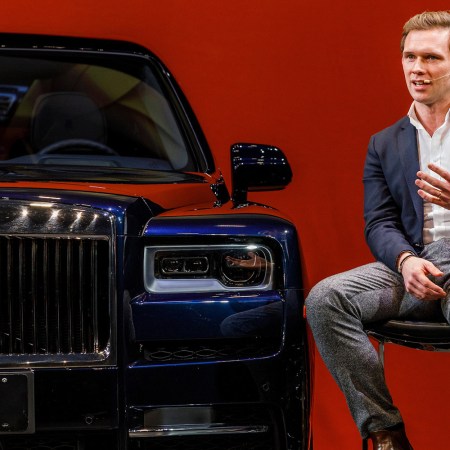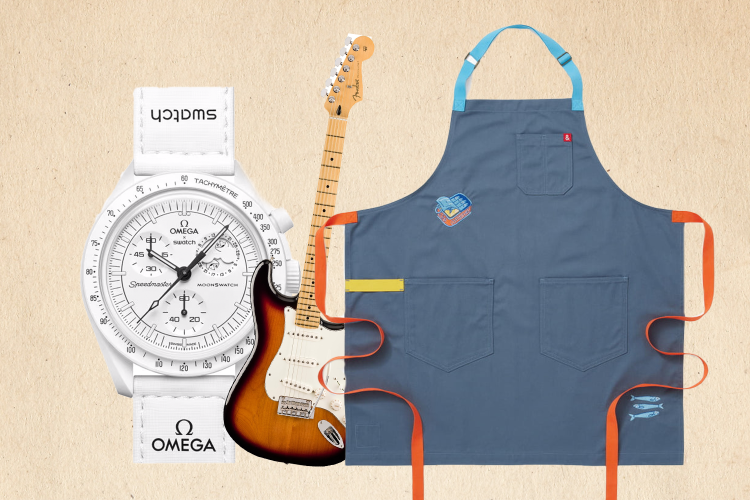At around $110,000, you might think you’ve found a real steal for a Ferrari 250 Testa Rossa. Yes, it does come with Pirelli tires and it’s finished in the marque’s proprietary paint. However, on hearing that it’s fully electric and can get up to 60 mph on a straight run, your suspicions might well be aroused, especially once you see a fully-grown adult hop inside. As it turns out, this Ferrari is a 3/4th scale of the real thing.
“Owners of actual Ferraris like to see their car alongside one of ours,” Emily Giddings, marketing director of the Little Car Company, tells InsideHook. Under license, the U.K. concern makes shrunken versions of supercars from the likes of Bugatti, Aston Martin and Ferrari. “Some take their ‘junior’ cars to track days or use them to drive around their estates…because the full-sized car they own has become too valuable to drive. They’re not road-legal, but adults and children alike can drive them.” Start them early, as they say.
According to Giddings, describing what she does for a living is the hardest part of her job. “It’s like, ‘What? Little cars? You do what?!’” she says. But the fact that the Little Car Company launched just a few years ago, in 2019, and now has full order books with some of the biggest names in prestige car-making is a testament to just how insane our auto obsession has become.
“There’s just such a community of high-net-worth and very serious car enthusiasts out there now looking for something different,” says Giddings. “I mean, our clients are typically buying these junior cars for themselves, not for their children.”
Indeed, the market for automotive paraphernalia — all the accessories you can attach to or put inside your car, as well as the endless roster of car-related merchandise — is currently valued at around a staggering $1.576 trillion globally and expected to see record growth of a further $370 billion over the next five years. How is that possible when the car itself, not the extra ephemera, should ostensibly be the focus? According to research analysts at Valuates, it’s in part down to a desire for increased personalization of cars in a market that arguably sees too many cookie-cutter vehicles. It’s also due to the fact that our choice of car — like our clothing and decor — is an expression of our identity.
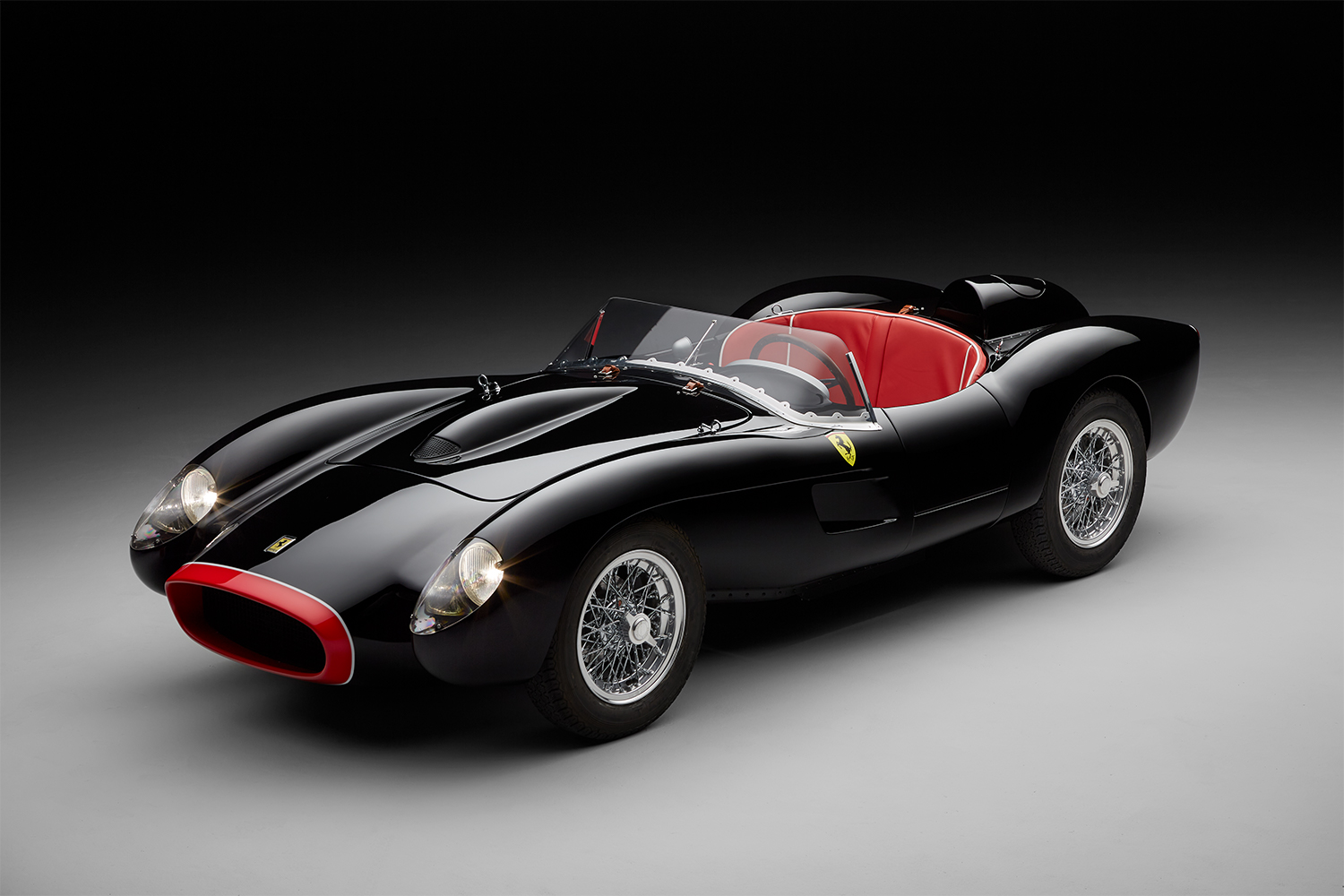
For those with the cash, that’s driving a niche for more expensive and more outlandish ways of celebrating an obsession with automobiles.
“Car people are so loyal to their brand they even want to wear it,” says Christi Schimpke, founder and designer of Crash Jewelry. Her husband runs a body shop in Los Angeles for supercars, fixing their fender-benders; Schimpke takes the salvaged metal parts of said cars and turns them into cufflinks, bracelets and other accessories using methods she’s developed to retain the original paint finish. You can now wear your Porsche 911 GT3, Maserati Ghibli or Bentley Continental on your wrist.
“It’s niche,” she concedes, “but there are a lot of very enthusiastic car enthusiasts here in California.”
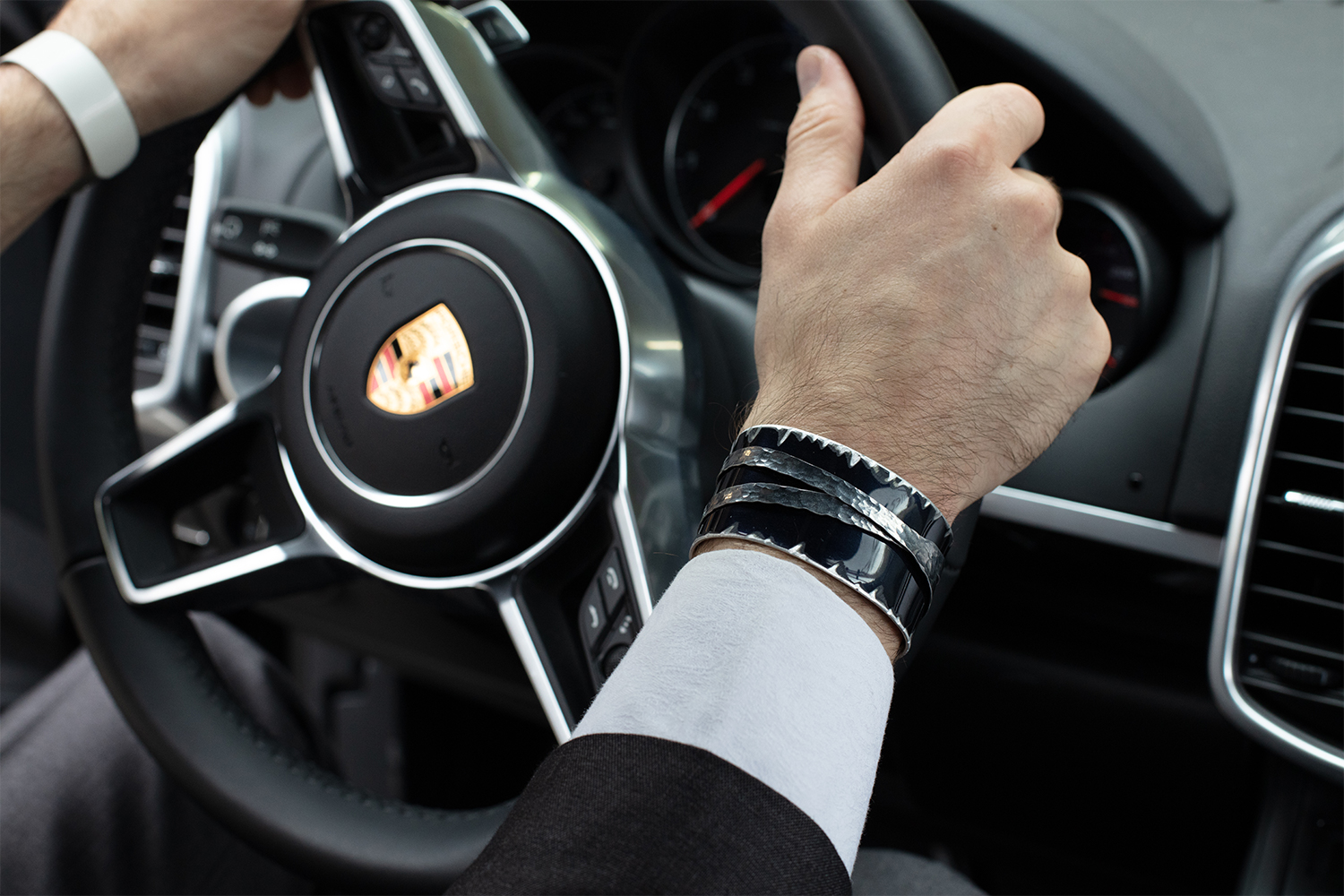
The scope of the market for luxury car ephemera is borderline fanatical. U.K. publisher Barker Cason will include your beloved vehicle in one of its series of glossy coffee table books; “Real Cars, Real Owners” is its tagline. It targets those who have always dreamed of seeing their car glorified in print. Hartnack and Co. is an “artisan bindery” that makes bespoke leather folders and boxes in which to keep your classic car documents. And for those who want to look the part while driving their automobile, Greycar deals in replicas of period-correct touring helmets, driving gloves, goggles and overalls.
The 50 Most Underappreciated Cars of All Time
A panel of automotive writers rank six decades of vehicles that the collector market has criminally overlooked“I’ve always been a bit of a petrolhead,” says Simon Wright, founder of Limited100, though that may be a slight understatement. “I think [this kind of automotive paraphernalia] is a way for people to get close to their car, or for some to get close to a car they probably can’t afford. In fact I think the love of a specific car is often something that connects us to our youth, or to pop culture more broadly.”
That’s why Wright’s company offers giant acrylic glass images of your favorite car — or, indeed, your own car — shot by one of his roster of six of the world’s leading car photographers, including the in-house photographer of McLaren. This dazzling wall art, at sizes up to 16-feet wide, can be yours for just $12,000.
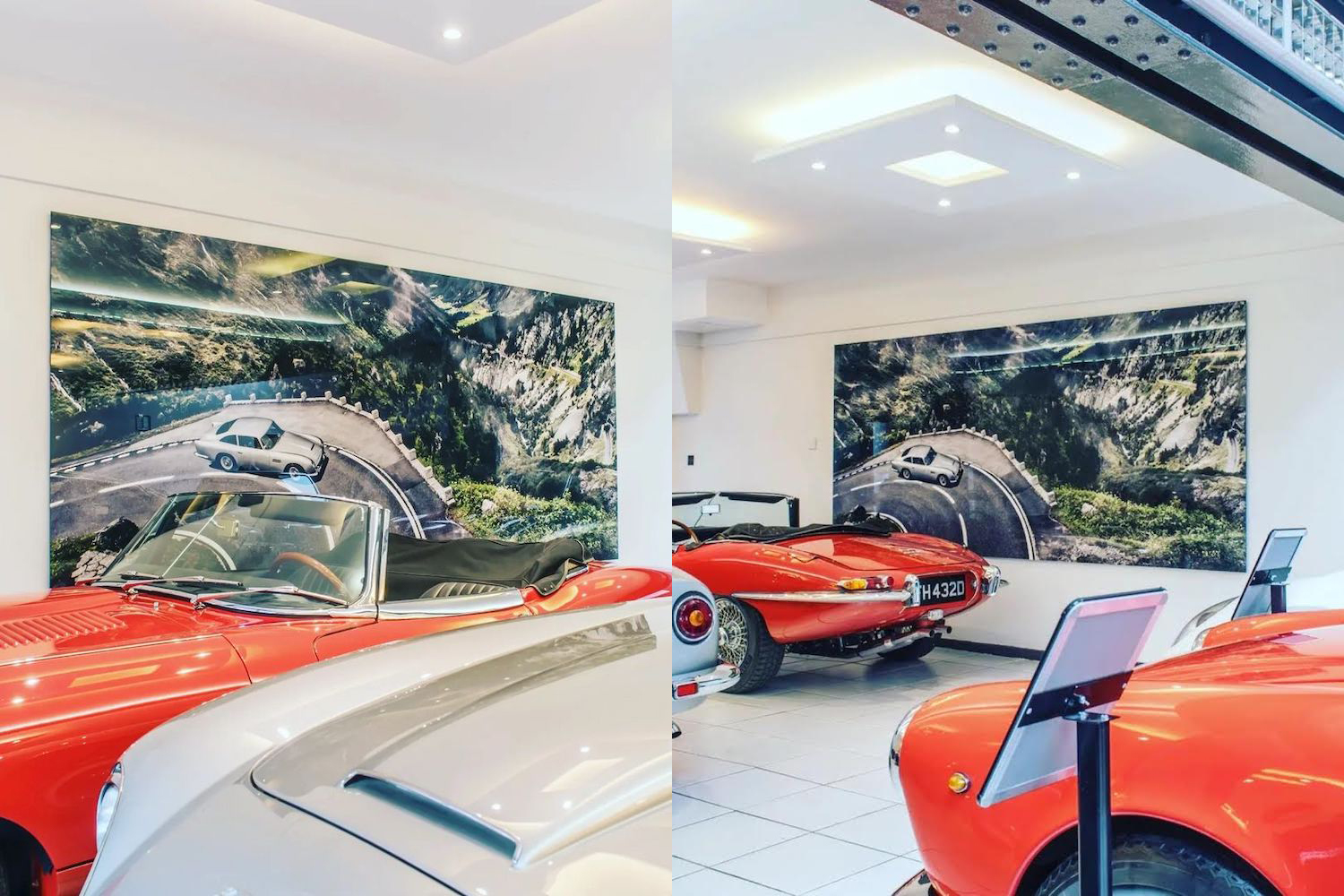
“We just supplied one of that size to a guy in the south of France who wanted it for the garage in which he keeps all of his cars,” says Wright, who also sells more affordable prints by his photographers. “Of course, you need a lot of space to be able to put up a picture this size.”
It’s somewhat easier to find space for one of Anthony Holt & Sons’ silver models on your shelf, but they are no less expensive. The British silversmiths have historically been model makers to the U.K.’s Royal Artillery and Royal Tank Regiments, but, as company director and craftsman Gil Holt stresses, “I just never liked tanks much, all that military stuff. What I wanted to make were cars. Like many men, I’m just in love with cars.”
Holt started making silver-inlaid ashtrays, humidors and other pieces for the likes of Aston Martin and Bentley Mulliner. Now he spends anywhere between four months and a year hand-making, one by one, silver models of his clients’ cars, at 1/24th scale around $7,000 a pop.
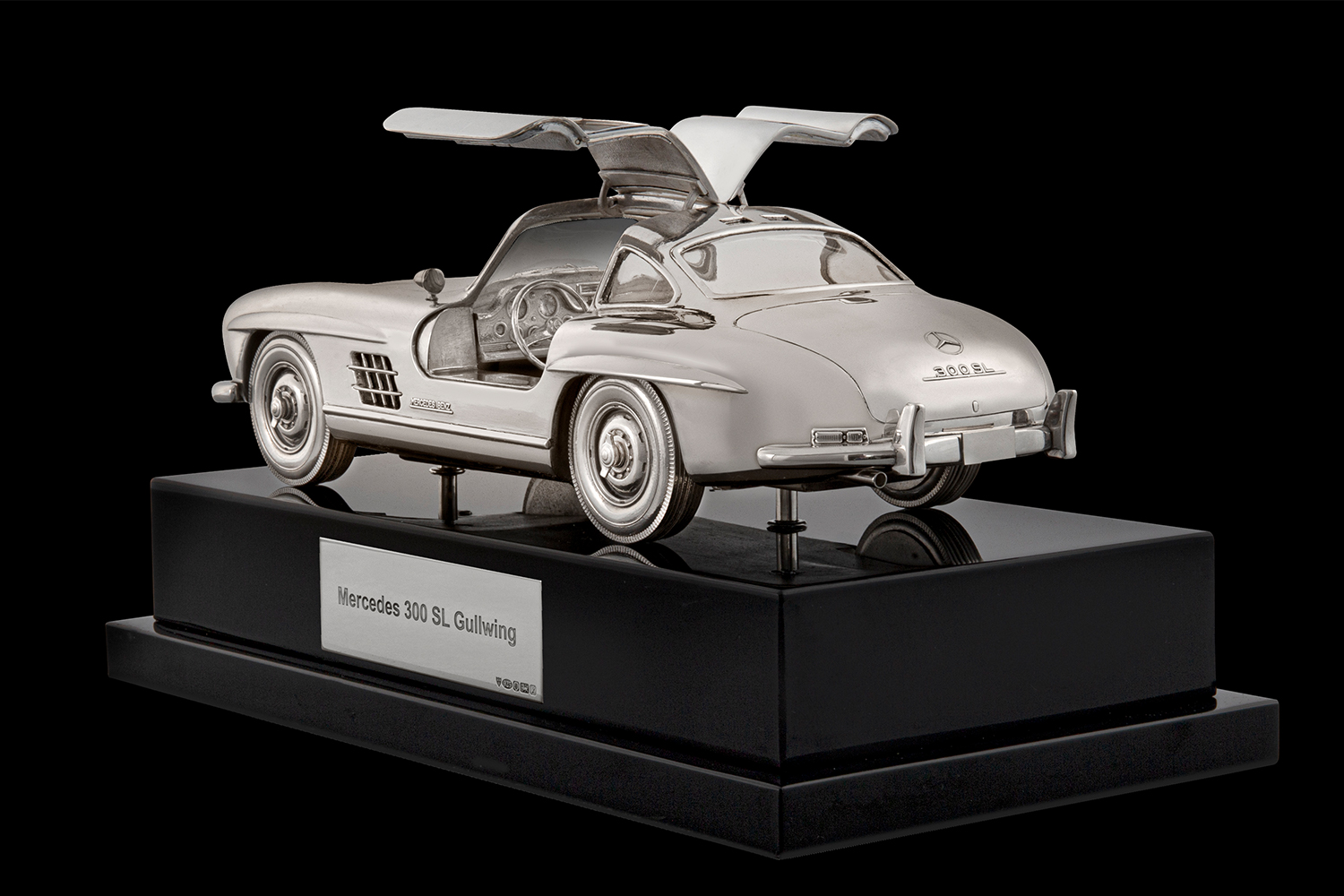
And Holt is ready to really go to town. That is, go to your town, photograph your car extensively, take measurements and then replicate it down to the smallest detail in the precious metal. At their most extreme, one of his so-called “masterpiece” models might include fully working parts — a turning steering wheel, moveable seats, opening gas cap and so on — that will take him the best part of three years to craft and will cost in the region of $1.2 million.
“What can I say? Basically I’m a model maker to car fanatics,” says Holt, who is currently also making a model for himself of his own Ferrari. “It seems my clients just love the idea of, in some sense, having their car in their house. It’s a reminder of what they have parked in their garage. It’s a piece of art, a talking point, an ornament that integrates their interest in cars. And, it seems, the desire to express that interest can run very, very deep.”
This article was featured in the InsideHook newsletter. Sign up now.
